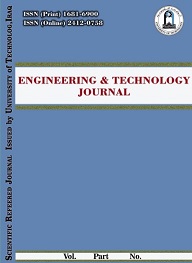Abstract
Membrane distillation (MD) faces challenges in the form of diminished permeate flux attributed to the loss of hydrophobicity with time. Nanomaterials play an essential role in enhancing the performance of MD through membrane modification during formation or surface modification. Numerous nanomaterials have been investigated, particularly for flat sheet polyvinylidene fluorides (PVDF). These nanomaterials have provided unparalleled opportunities for the MD process application, such as increased water desalination efficiency, improved membrane durability, and reduced energy consumption. Adding nanomaterials changed the MD membrane properties, such as the size of the pores, porosity, and hydrophobicity, which significantly enhanced MD efficiency. However, some are sometimes exposed to peel-off or release to the distillate, which causes second contamination (leaching of nanomaterials). This review provides a comprehensive insight into the impact of different nanomaterials on the performance of flat sheet PVDF membranes and their stability over extended operations in MD for water desalination
Keywords
Membrane distillation; Modification membrane; Nanomaterials; leaching; Hydrophobicity; Stability
